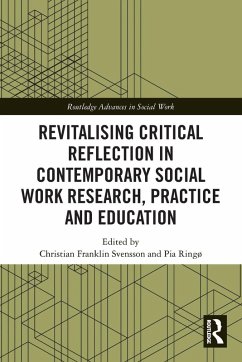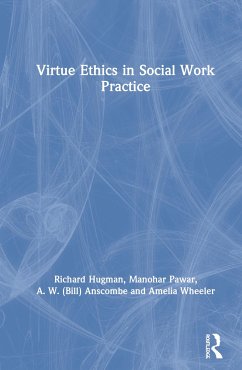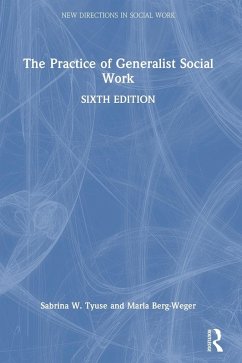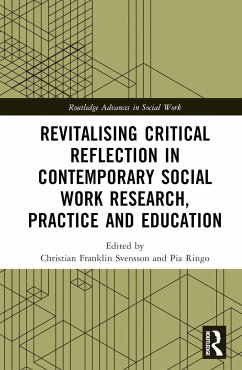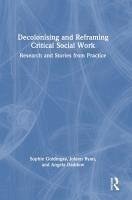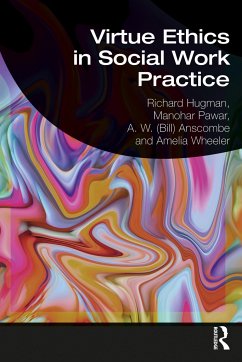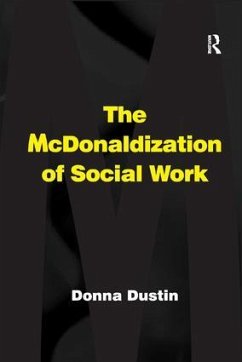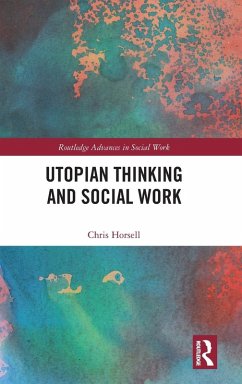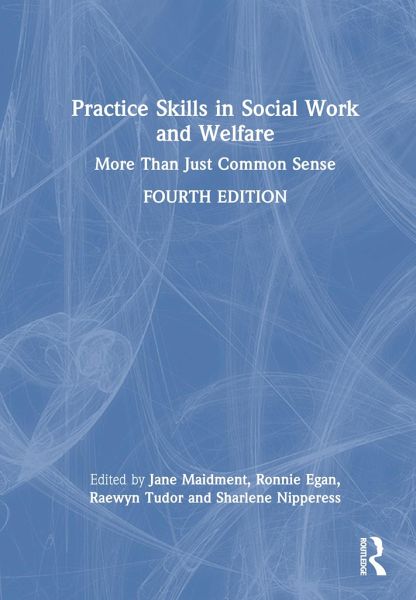
Gebundenes Buch
Practice Skills in Social Work and Welfare
More Than Just Common Sense
Herausgeber: Maidment, Jane; Tudor, Raewyn; Egan, Ronnie
Versandkostenfrei!
Versandfertig in 1-2 Wochen

PAYBACK Punkte
75 °P sammeln!




Practice Skills in Social Work and Welfare has established itself as the essential text to prepare students for the wide-ranging challenges they will face in today's human service sector.
Jane Maidment is Professor of Social Work at the University of Canterbury, Aotearoa New Zealand, and has had over 25 years of teaching practice skills with social work students. She has also had many years leading the field education component of the curriculum. Jane has published mainly in the fields of social work education, graduate readiness to practice and work-integrated learning. She is also interested in and has researched the role of craft in generating social connectedness. Ronnie Egan is Associate Professor of Field Education at RMIT University in Melbourne, Australia. She has specialised in research about social work supervision and practice for graduates and students. She has co-authored a number of books and published widely in the areas of social work practice skills, supervision, field education and partnerships. Raewyn Tudor is a senior lecturer and director of field education in the Social Work Department, University of Canterbury, in Christchurch, Aotearoa New Zealand. Raewyn's teaching and research focus on community development, disaster recovery and social policy analysis in social work practice. Raewyn is a book review editor and member of the Australasian Board of the international journal Social Work Education. She is also a member of UC's Critical Health and Wellbeing Research Group. Sharlene Nipperess is a senior lecturer at RMIT University, Melbourne, Australia. Sharlene's teaching and research focus on social work ethics; critical multicultural and human rights-based approaches to practice; the role and impact of technology in social work; and policy and practice relating to displacement, disability family/carer lived experiences and homelessness. Sharlene has co-edited two books, Critical Multicultural Practice in Social Work: New Perspectives and Practices (Routledge, 2019) and Doing Critical Social Work: Transformative Practice towards Social Justice (Routledge, 2016).
Produktdetails
- Verlag: Routledge
- 4. Auflage
- Seitenzahl: 320
- Erscheinungstermin: 30. Dezember 2022
- Englisch
- Abmessung: 250mm x 175mm x 22mm
- Gewicht: 734g
- ISBN-13: 9781032056562
- ISBN-10: 1032056568
- Artikelnr.: 65935126
Herstellerkennzeichnung
Libri GmbH
Europaallee 1
36244 Bad Hersfeld
gpsr@libri.de
Für dieses Produkt wurde noch keine Bewertung abgegeben. Wir würden uns sehr freuen, wenn du die erste Bewertung schreibst!
Eine Bewertung schreiben
Eine Bewertung schreiben
Andere Kunden interessierten sich für





